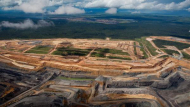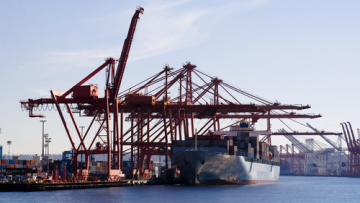Adani’s US$7bn Australian coal project unviable
INTERVIEWS:
Report authors Tom Sanzillo and Tim Buckley (IEEFA), and Greenpeace's Erland Howden, are available for interview.
MEDIA CONTACTS:
Julie Macken: +61 400 925 217
INTERVIEWS:
Report authors Tom Sanzillo and Tim Buckley (IEEFA), and Greenpeace's Erland Howden, are available for interview.
MEDIA CONTACTS:
Julie Macken: +61 400 925 217
A new report released today by US-based Institute for Energy Economics and Financial Analysis (IEEFA) - Remote Prospects: A financial analysis of Adani's coal gamble in Australia's Galilee Basin - warns investors the controversial 60 million tonne per annum Carmichael coal mine and infrastructure project is uncommercial.
Report co-author, IEEFA's Tom Sanzillo, former first deputy comptroller of New York said, "Our conclusion is that Carmichael presents a picture of unacceptable risk. It's a high cost coal product in a low cost market in structural decline. The project is uneconomic by any measure," said Mr Sanzillo.
"This project is on the wrong side of the coal boom. It might have been viable 5 years ago but the market has moved on. Adani bought in at the peak of the coal cycle but failed to predict the structural decline of coal," Mr Sanzillo said.
"Adani is now overextended with unrealistically ambitious expansion plans, has no successful history of coal mining, has lost share value in critical segments, and is over-leveraged, with $US12bn of debt against external market capitalization of $US5.17bn. It is in not in a strong position to complete this project."
Adani Enterprises is proposing to develop the 60 million tonne per annum thermal coal mine complex in the remote Galilee Coal Basin, central Queensland, Australia; construct 500km of rail infrastructure across agricultural land and floodplains to the coast; and develop a highly contentious coal export terminal through the iconic, UNESCO World Heritage listed Great Barrier Reef.
Key findings of the report include:
- The estimated cost of production of A$87/t (energy adjusted) is likely to be above the global thermal coal price for the foreseeable future, rendering the project uneconomic.
- Adani is in a weak financial position to execute such an ambitious project: with external equity market capitalization at only US$5.17bn against estimated net debt of $12bn, development costs for the Carmichael and Abbot Point T0 coal terminal projects are estimated at US$10bn.
- Adani has over-estimated coal quality while under-estimating costs and project complexities.
- At peak production of 60 million tonnes per annum, Adani's Carmichael mine would be by far the largest coal mine in Australia in a remote inland region with no power, rail, water or workforce infrastructure. Prior to 2013, Adani's only other experience in coal mining is a 2-4mtpa coal mine in Indonesia that has consistently performed below expectations.
- The project is plagued by delays that continue to squeeze the Adani Group's cash flow, with the company conceding the 2014 timetable for commencement of production has been pushed out to 2016, but more likely 2017 with full production beyond 2022.
Report co-author Tim Buckley, independent financial analyst said, "Our analysis shows a systemic problem with the financial viability of coal mining in the Galilee Basin. Adani may have thought they were buying a coal mine, but it is increasingly likely that they have inadvertently bought themselves the world's most expensive cattle station."
"The Queensland government's recent announcement of a royalty holiday for the first movers in the exploitation of Galilee coal signals to the market that these high-cost greenfield projects in Queensland are unviable from an investment perspective."
Erland Howden, Energy Campaigner Greenpeace Australia Pacific, which commissioned the report, said, "It is clear that the Carmichael project, if developed, will be an environmental and climate disaster. This report shows that the project is also uneconomic."


